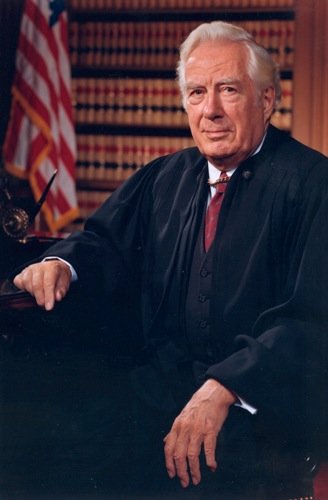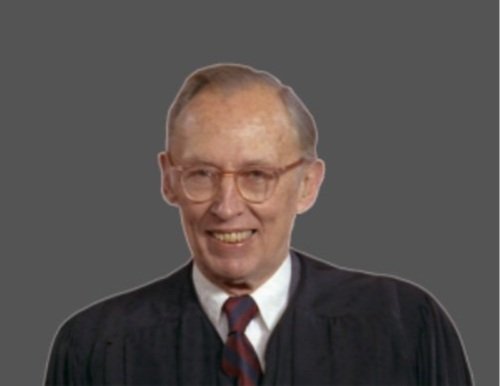Apodaca v. Oregon
Case Overview
CITATION
ARGUED ON
REARGUED ON
DECIDED ON
DECIDED BY
OVERRULED BY
406 U.S. 404 (1972)
March 1, 1971
January 10, 1972
May 22, 1972
Ramos v. Louisiana (2020)
Legal Issue
Does the Sixth Amendment, as applied to the states through the Fourteenth Amendment, require a unanimous verdict from a jury in a state criminal trial?
Holding
No, there is no constitutional right to a unanimous jury verdict in non-federal criminal cases.
Robert Morgan, the Attorney General of North Carolina, argued the case on behalf of the appellant | Credit: William E. Sauro/The New York Times
Background
In 1934, Oregon enacted a state constitutional amendment allowing a jury of 12 to render a guilty verdict so long as at least 10 members were in agreeance. Robert Apodaca, Henry Morgan Cooper, Jr., and James Arnold Madden were convicted of assault with a deadly weapon, burglary, and grand larceny, respectively. They were convicted by juries that were not unanimous (10-2 and 11-1 verdicts) for the charges. Apodaca, Cooper, and Madden appealed, arguing that Oregon’s allowance of non-unanimous jury verdicts for certain criminal convictions violated their Sixth Amendment right to a fair trial as incorporated by the Fourteenth Amendment against the states. Initially, Apodaca’s conviction and the use of a non-unanimous jury were upheld by the Oregon state courts, which adhered to the state’s longstanding practice of allowing for such verdicts. The Supreme Court then granted certiorari.
Summary
5 - 4 decision for Oregon
Apodaca
Oregon
Stewart
Douglas
Marshall
Rehnquist
Powell
Brennan
Burger
White
Blackmun
Plurality Opinion by Justice White
In his plurality opinion, Justice Byron White, joined by Chief Justice Burger, Justice Blackmun, and Justice Rehnquist, held that the Sixth Amendment did not mandate unanimity in jury verdicts, thereby upholding Oregon’s practice of allowing non-unanimous jury verdicts in felony cases. White first referenced the Court’s decision in Williams v. Florida (1970), which held that the Sixth Amendment did not require a twelve-member jury. White argued that similar to the twelve-member requirement, the unanimity rule was not essential to the Sixth Amendment’s guarantee of a fair trial. He emphasized that the purpose of the jury trial was to interpose the common sense judgment of a group of laymen between the accused and the accuser, which does not necessarily require unanimity.
White examined the historical context of the unanimity rule, noting its development during the Middle Ages and its acceptance in common law by the 18th century. However, he argued that the history of the Sixth Amendment indicated that the Framers did not intend to include all common-law features of the jury system. He pointed out that the original proposal for the Amendment included a unanimity requirement, but this was ultimately rejected by Congress. Addressing the argument that unanimity was necessary to uphold the reasonable doubt standard, White noted that the Sixth Amendment had never been held to require proof beyond a reasonable doubt. He highlighted that the reasonable doubt standard developed separately from the jury trial and unanimity requirements and therefore, he found no constitutional basis for linking the unanimity rule to the reasonable doubt standard. White ultimately concluded that the essential functions of a jury trial could be achieved without requiring unanimity, so Oregon’s law did not violate the Constitution.
Dissenting Opinion by Justice Stewart
In his dissenting opinion, Justice Potter Stewart argued that the Court’s decision went against past precedent. He wrote, “[u]nless Duncan [Duncan v. Louisiana (1968)]is to be overruled, therefore, the only relevant question here is whether the Sixth Amendment's guarantee of trial by jury embraces a guarantee that the verdict of the jury must be unanimous. . . Until today, it has been universally understood that a unanimous verdict is an essential element of a Sixth Amendment jury trial. . . I would follow these settled Sixth Amendment precedents and reverse the judgment before us.”









